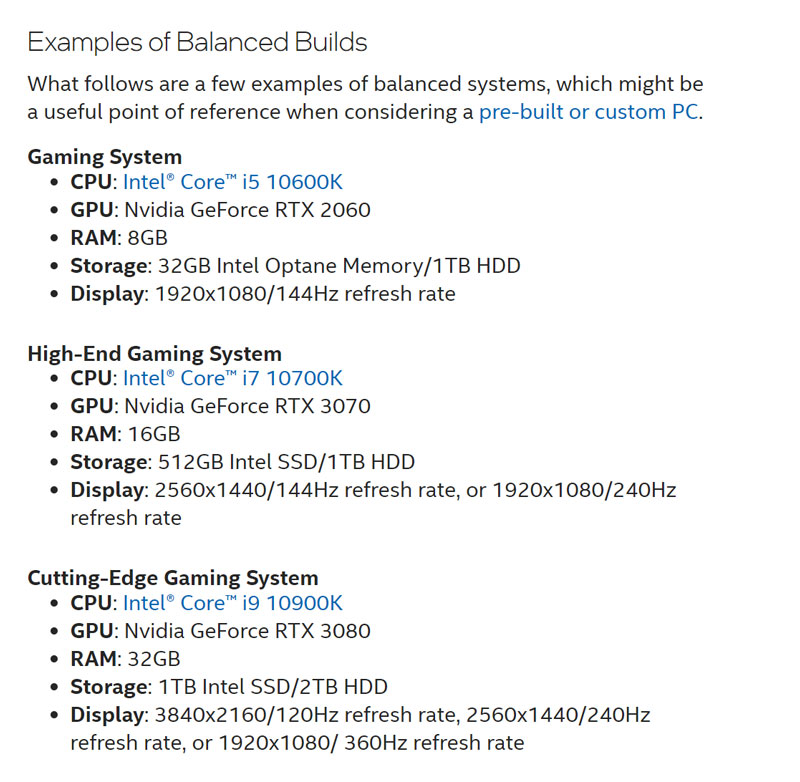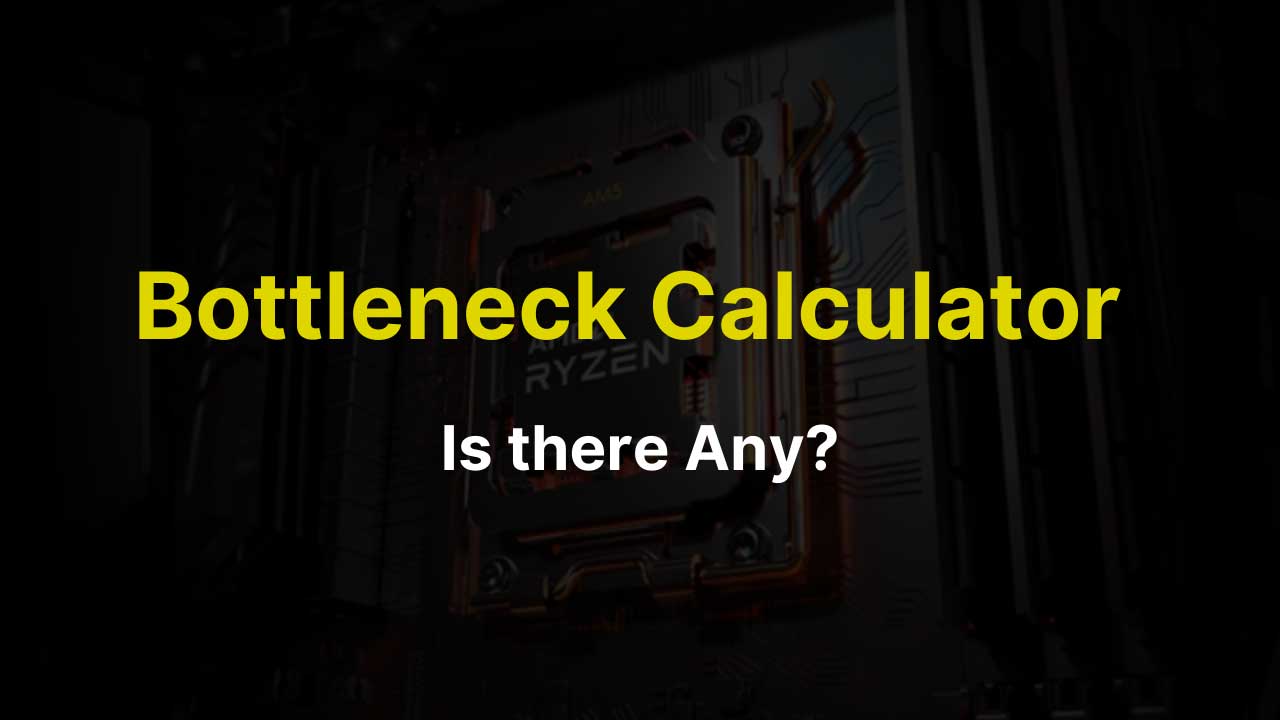For a gaming PC overall delivering smooth graphics at max, FPS matters the most. Sometimes, the PC is not performing correctly even after having the best processor or graphic card. Game lags, crashes, slow loading time, poor graphics, overheating, etc can occur due if PC bottlenecks. To find this issue beforehand you will need a good Bottleneck Calculator. By adding details like CPU Model, RAM Model with Mhz, GPU Model, etc you can find out if the build is good enough to handle a specific resolution or not.
Best Bottleneck Calculator

Source: Intel
Frankly speaking, there is no good bottleneck calculator on the web. The reason is due to various hardware components. But there are ways to avoid bottlenecks. I am going to discuss them more instead of providing you with calculators that are actually good for nothing.
How do avoid bottlenecks in gaming PCs?
A balanced gaming pc is built with five compatible components.
- Processor (Any good latest model)
- Graphic Card compatible with CPU
- Gaming category motherboard
- RAM with Compatible Mhz
- PSU – good enough to provide stable power.
If you are having the latest processor but due to some reasons, the motherboard is not of a good standard, the pc will not perform well. You will have to compromise with medium-range graphics. To get the max along with the processor a good graphic card is a must. Here is an example of an AMD build from PCPartPicker.
- AMD Ryzen 5 5600X 3.7 GHz 6-Core Processor
- ARCTIC Freezer 34 eSports DUO CPU Cooler
- ASRock B550M Phantom Gaming 4 Micro ATX AM4 Motherboard
- Corsair Vengeance LPX 16 GB (2 x 8 GB) DDR4-3600 CL16 Memory
- Silicon Power A60 1 TB M.2-2280 NVME Solid State Drive
- MSI Radeon RX 6600 XT 8 GB MECH 2X OC Video Card MSI Radeon RX 6600 XT 8 GB MECH 2X OC Video Card
- Antec DF700 Flux ATX Mid Tower Case
- EVGA B5 550 W 80+ Bronze Certified Fully-Modular ATX Power Supply
A good Liquid Cooler, Nvme drive, and gaming motherboard can make a big difference in the overall performance of the system. That is why before building a gaming pc checkout configs of the existing build. You can visit the PCPartPicker Build section for the same.
Later on, once you have decided on the hardware, you can focus more on budget by replacing things that can be replaced. Like the overall System Case, or Nvme based on storage, or GPU based on Memory Size. If you follow up on these steps there will be no issue with performance.

